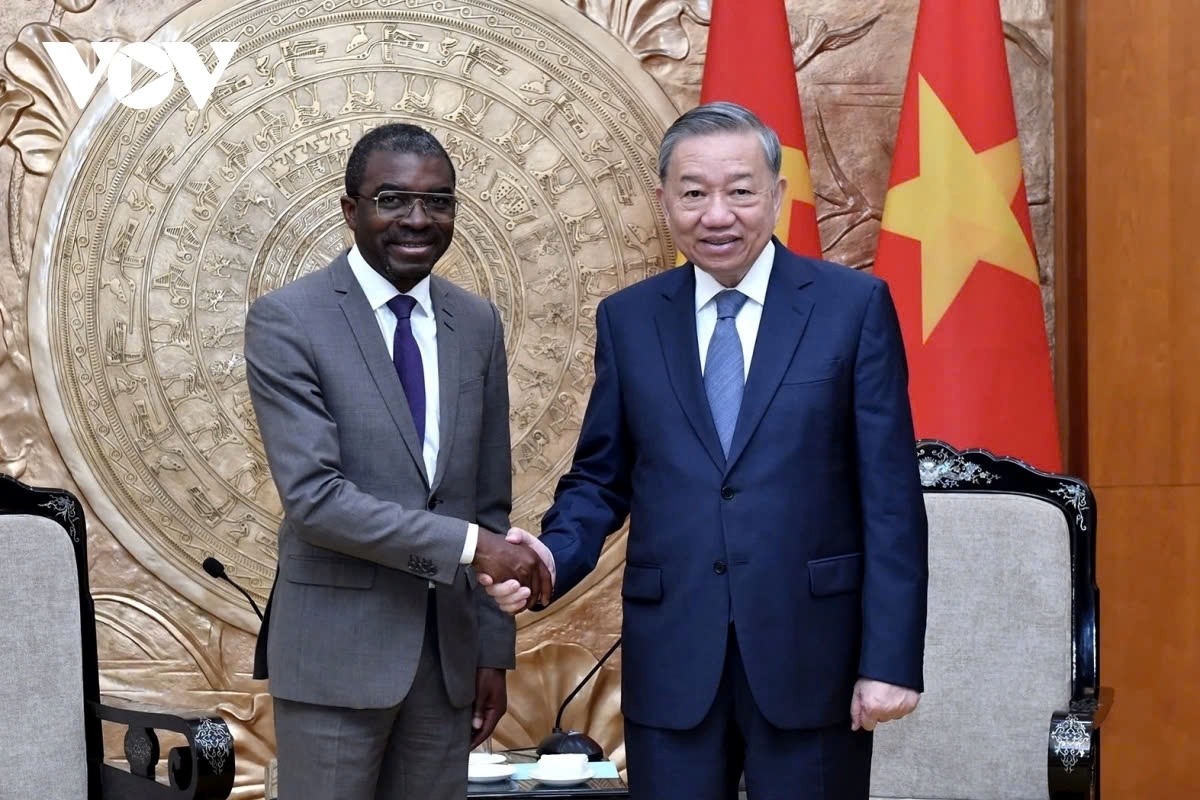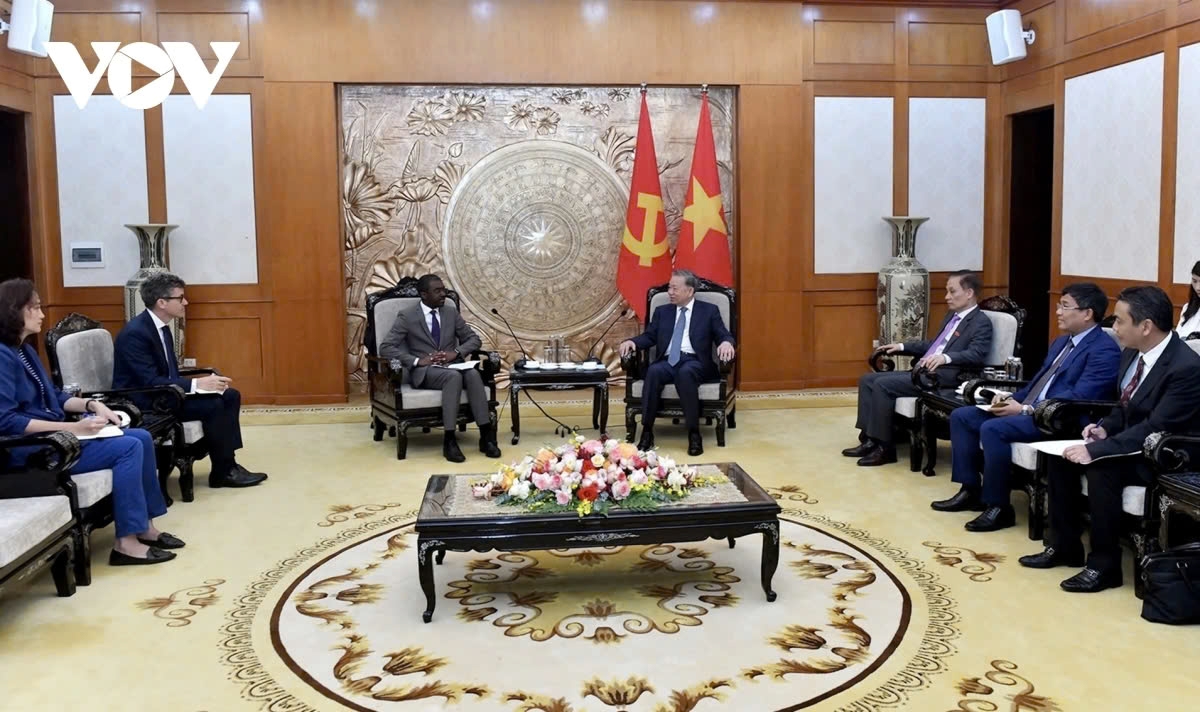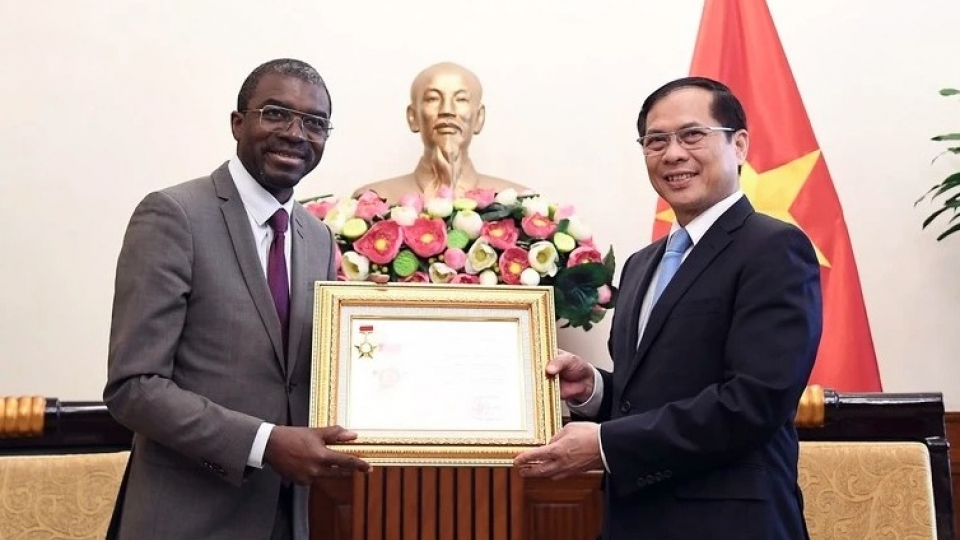Vietnam ready to share national development success story, says Party leader
VOV.VN - Vietnam stands ready to share its experience in national development and success story, contributing responsibly to UNESCO’s mission, said Party General Secretary To Lam during his reception for Lazare Eloundou Assomo, director of the UNESCO World Heritage Centre in Hanoi on May 20.

Lam appreciated UNESCO’s role in promoting multilateralism, maintaining peace and security, and fostering sustainable development globally. He thanked UNESCO for nearly 50 years of support and cooperation, particularly in Vietnam’s post-war recovery and ongoing development efforts.
The Party General Secretary highlighted that Vietnam now has 72 UNESCO-recognised titles across the country, including 8 World Cultural and Natural Heritage sites, which are valued as important resources for local sustainable socio-economic development, helping to improve people’s livelihoods, preserve national heritage, and contribute to human civilization.
Vietnam is proud to be a trusted and active partner of UNESCO, and it will continue to make meaningful contributions, particularly as a member of key governing bodies including the World Heritage Committee, he said.
According to the Party leader, Vietnam is striving toward a prosperous and strong future, focusing on balanced socio-economic development, environmental production, and cultural, educational, scientific, and technological development, with innovation and digital transformation at the core.
He affirmed that culture is an intrinsic strength and spiritual foundation of society, and a vital driver of sustainable national development. The 2025-2035 National Target Programme on Cultural Development is being implemented to unlock resources for heritage conservation, promote cultural values, absorb global cultural essence, and enrich the spiritual life of the people, especially in remote and disadvantaged areas to build a comprehensive Vietnamese identity for the new era.
Vietnam will continue its deep and broad integration into the global political, economic, and cultural arenas, striving to make further contributions to peace, stability, and development in the region and the world at large, he affirmed.
The leader requested that UNESCO, particularly the World Heritage Centre and its Director, continue supporting Vietnam in promoting its cultural values internationally and preserving its world heritage sites.
Furthermore, he requested support for the nomination of the Co Loa Citadel as a World Heritage Site, and the recognition of the Yen Tu - Vinh Nghiem - Con Son, Kiep Bac Monuments and Scenic Complex at the 47th session of the World Heritage Committee in Paris this July. These sites, he said, reflect core values of national unity, religious harmony, tolerance, and a love for peace.

Assomo, for his part, affirmed Vietnam is a strategic, reliable, and active partner that contributes substantially and meaningfully to UNESCO’s mission. Vietnam is a model of cooperation between a member state and the organisation, particularly in the preservation and promotion of heritage. He noted that the country’s innovative approaches and models in heritage management should be shared more widely with other member states.
The UNESCO official expressed his admiration for Vietnam’s dynamic development, as well as the clear and visionary leadership of the Communist Party through its major reform strategies, especially in institutional reform, education, culture, science and technology, innovation, and digital transformation. These factors, he said, provide a strong foundation for Vietnam to continue its responsible global contributions to cultural preservation.
He acknowledged Vietnam’s deep-rooted historical and cultural legacy and expressed strong agreement with the General Secretary’s vision of leveraging culture and heritage for sustainable development. He affirmed UNESCO’s commitment to accompanying and providing technical support to Vietnam in heritage preservation efforts.
He pledged to work closely with Vietnam to manage, preserve, and promote its eight existing World Heritage sites, including the restoration of Kinh Thien Palace and the recognition of new heritage nominations such as Co Loa Citadel and the Yen Tu - Vinh Nghiem - Con Son, Kiep Bac Complex.





